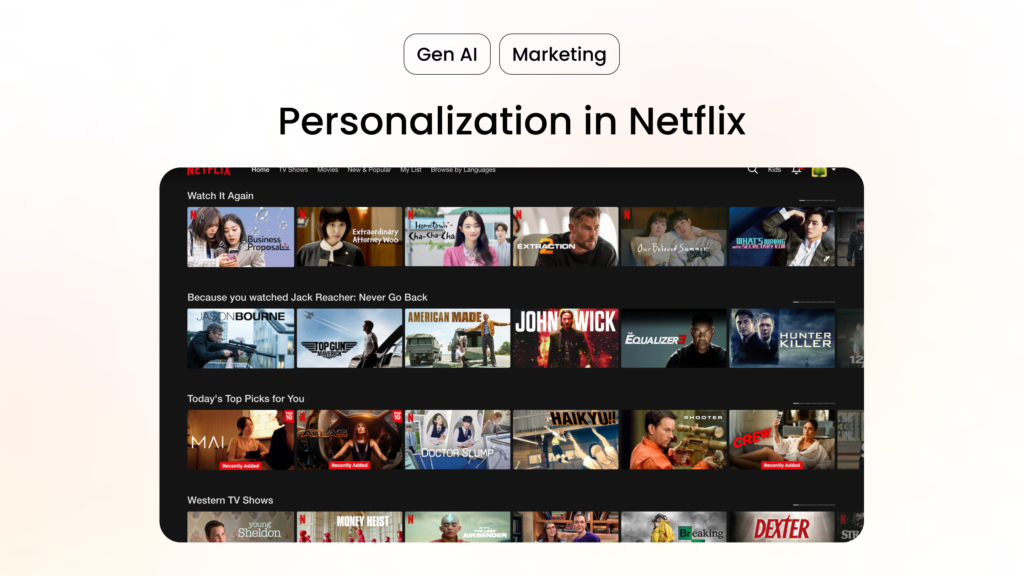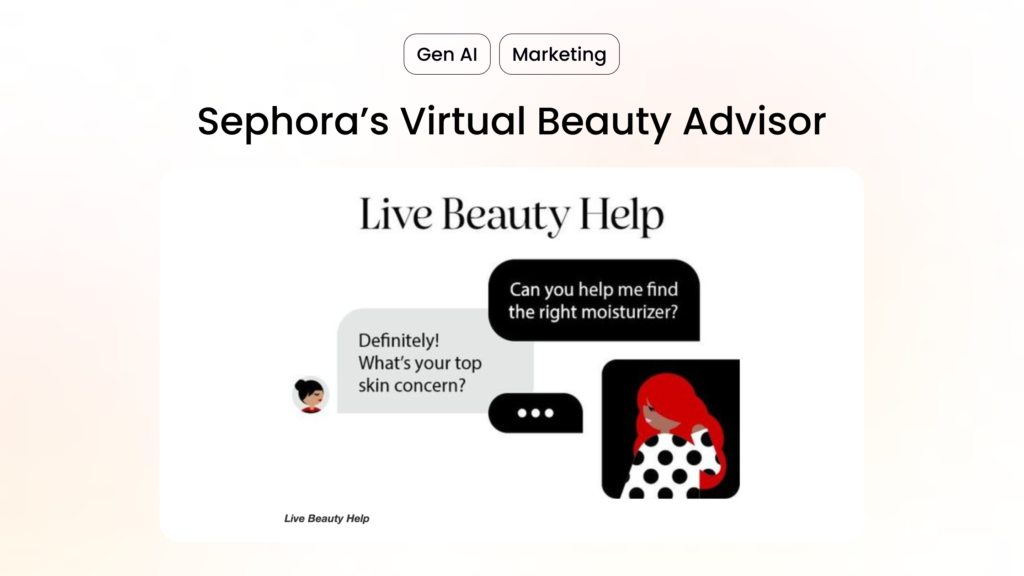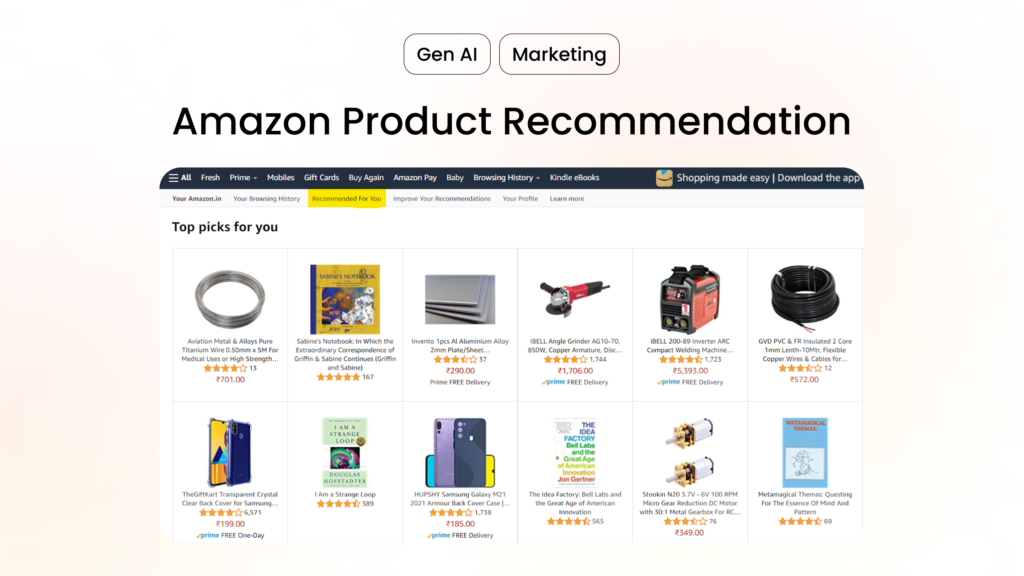In the digital age, enhancing AI-powered personalization is paramount for businesses aiming to stand out. The rise of artificial intelligence (AI) in Marketing and machine learning is revolutionizing how companies interact with their customers, offering highly personalized experiences. Leveraging AI technology enables businesses to meet and exceed customer expectations, fostering loyalty and driving success.
This blog post explores how AI-powered personalization is revolutionizing customer experience. Then, it offers practical steps for implementation and examines case studies from leading companies.
What Is AI-Powered Personalization?
AI-powered personalization involves collecting and analyzing vast amounts of customer data. These data range from browsing and purchasing history to social media interactions and demographic information. They are used to understand the specific needs and preferences of each customer, allowing businesses to tailor their offerings and communications more effectively.
Some outstanding case studies are as follows:
- Netflix: Netflix leverages advanced AI algorithms to meticulously analyze users’ viewing histories, ratings, and interactions. This analysis is used to curate highly personalized content recommendations, significantly engaging users by aligning suggestions with their preferences, thereby increasing the overall viewing time and user satisfaction.

- Sephora: Sephora harnesses the power of AI to offer personalized product recommendations and tailored beauty advice to its customers. Their innovative Virtual Artist tool employs cutting-edge augmented reality technology allowing users to try on makeup virtually. This not only enhances the shopping experience by making it interactive and fun but also helps in making more informed purchasing decisions.

- Amazon: Amazon employs a sophisticated recommendation engine, which analyzes users’ browsing histories, past purchases, and items in their shopping carts. By doing so, it can intelligently suggest products that customers might be interested in buying. This not only drives sales by making relevant recommendations but also significantly improves customer satisfaction by making the shopping experience more personalized and efficient.

Advantages of AI-Powered Personalization
The benefits of implementing AI-powered personalization in your business are numerous and compelling: This cutting-edge approach can significantly enhance customer experiences by delivering content and recommendations that are tailored specifically to individual preferences and behaviors. Not only does this increase engagement and satisfaction, but it can also lead to improved conversion rates and customer loyalty.
By leveraging the power of artificial intelligence, businesses can gain a competitive edge by providing a more personalized and efficient service that meets the unique needs of each customer.
Optimized Customer Experience
Personalized experiences make customers feel valued and understood, enhancing satisfaction and loyalty. By serving relevant content and offers, businesses can create a seamless and enjoyable customer journey.
Increased Revenue
When customers receive recommendations and offers that are highly relevant to their needs, they are more likely to make a purchase. AI-driven personalization can significantly boost conversion rates and average order values.
Reduced Customer Churn
By understanding and anticipating customer needs, businesses can proactively address potential issues and retain customers more effectively. Personalized experiences increase customer loyalty and reduce the likelihood of churn.
Data-Driven Insights
AI algorithms analyze customer data to uncover patterns and trends that human analysts might miss. These insights can inform marketing strategies, product development, and overall business operations.
How to Implement AI-Powered Personalization
Employing AI to develop an effective personalization strategy requires careful planning and execution. Here are key steps to consider:
Step 1: Define Objectives
Clearly outline what you aim to achieve with AI-powered personalization. Whether it’s increasing sales, improving customer satisfaction, or reducing churn, having defined objectives will guide your strategy.
Step 2: Use High-Quality Data
The effectiveness of AI algorithms depends on the quality of the data they process. Ensure your data is accurate, up-to-date, and comprehensive. Collect data from various sources, including website interactions, social media, and customer feedback.
Step 3: Test and Refine
AI models should be continuously tested and refined to improve accuracy and effectiveness. A/B testing different personalization strategies can provide valuable insights into what works best for your audience.
Step 4: Be Transparent
Transparency builds trust. Clearly communicate to your customers how their data is being used to personalize their experience. Provide options for them to control their data and the level of personalization they receive.
Step 5: Personalize Across Channels
Ensure a consistent personalized experience across all customer touchpoints, including your website, email marketing, social media, and in-store interactions. Omnichannel personalization creates a cohesive and seamless customer journey.
Challenges & Considerations of AI-Powered Personalization
Data Privacy & Security
Collecting and analyzing customer data comes with significant privacy and security concerns. Businesses must comply with data protection regulations and implement robust security measures to protect customer information.
Implementation Costs
Implementing AI-powered personalization can be costly, requiring investment in technology, data infrastructure, and skilled personnel. However, the long-term benefits often outweigh the initial investment.
Transparency & Trust
Building and maintaining customer trust is crucial. Be transparent about data usage and ensure customers feel comfortable with how their information is being used. Providing clear privacy policies and opt-out options can help build trust.
The Future of AI-Powered Personalization
The future of AI-powered personalization looks promising, with advancements in AI technology continually improving the ability to deliver highly customized experiences. Emerging trends include:
- Real-Time Personalization: This innovative approach involves delivering personalized content and offers to customers as they interact with your platform, dynamically adjusting based on their current behavior and preferences, ensuring a highly relevant and engaging user experience.
- Voice and Conversational AI: By utilizing AI-powered voice assistants and chatbots, businesses can offer personalized and intuitive interactions. This technology understands and responds to user queries in a natural, conversational manner, enhancing customer service and engagement.
- Hyper-Personalization: Taking personalization to the next level, this strategy uses detailed and granular customer data, including browsing habits, purchase history, and preferences, to create extremely individualized experiences. Hyper-personalization aims to meet the specific needs and desires of each customer, delivering unmatched relevance and value.
Transforming Marketing Strategies With AI-Powered Personalization
AI-powered personalization is transforming how businesses interact with their customers, offering significant advantages in terms of customer experience, revenue growth, and data-driven insights. By understanding the benefits, implementation strategies, and challenges associated with AI-powered personalization, businesses can effectively leverage this technology to stay competitive and delight their customers.
Ready to revolutionize your customer experience with AI? Start integrating AI-powered personalization into your strategy today with Innovators Hub Asia and see the difference it can make.





